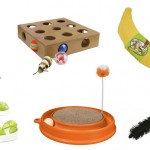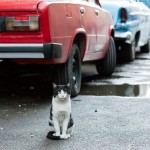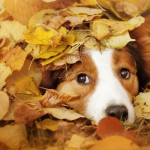Last updated: October 30th, 2020
As the days become shorter, and Summer turns to Autumn, it won’t be long until Bonfire Night is here. And with other celebrations such as Diwali, Christmas and New Year coming up soon as well, there will be plenty of fireworks going off, which are great for us to watch and enjoy, but can be very scary for animals. In fact, a survey by the Dogs Trust showed that 66% of dogs, and 57% of cats suffer from firework fear.
If you are worried about how your pet will cope during fireworks displays, we have got lots of advice to help keep your pets calm and safe.
Keep Your Pets Secure
- Keep your pets indoors when it is likely that fireworks will be set off. Close all windows and doors, and block off cat flaps so your pet can’t escape.
- During firework season, walk dogs during daylight hours when there is less chance of fireworks being let off. Try and give them plenty of exercise to tire them out for the evening. If walking your dog at dusk, consider using a reflective collar just in case they escape.
- Make sure your pet is micro-chipped and fitted with some easily readable identification just in case they do escape. For cats as well as dogs, it’s worth fitting an ID tag to their collar with your contact details.
- If you have a cat or dog tracker for your pet, then ensure it’s fully charged and fitted to your pet, just in case they escape and you need to find them.
Provide a Safe Hiding Place
- Make sure your cat or dog has somewhere safe to hide, for example under some furniture, a cupboard or in a quiet room in your house. For dogs, a crate is ideal and you can cover it with blankets or a Cage Cover to help your pet feel more secure, and also muffle the sound of the fireworks. It’s a good idea to set this up in advance, so they can learn that it is a safe place for them to hide. You can also leave some toys there so they associate the safe place with enjoyable experiences.
- For small pets who live in a cage, try and soundproof the cage by covering an area with a duvet or thick blankets, but leave an area which isn’t covered so they can look out if they want, and provide extra bedding for them to burrow into if they feel afraid.
- Consider moving small animal hutches indoors as long as it is safe to do so, i.e., you don’t have pets indoors that will traumatise the outdoors pets!
- If they are hiding, leave them alone and do not try and encourage them out or talk to them as this will cause even more stress.
Keep Pets Calm
- If your pet shows any signs of fear, you should act relaxed and ignore them, as by trying to calm the animal you reinforce there is something to worry about. If you are ignoring the sounds it encourages the dog or cat to do so too.
- Have a radio or TV on to cover the noise of the fireworks, and also close windows and curtains when it gets dark as this will muffle the sounds of fireworks and prevents any problems with the flashing lights.
- If you are expecting fireworks close by and your dog is very afraid, consider taking him or her elsewhere, such as to a friend who lives rurally if you have one. However, it is essential your pet cannot escape as it will be far from home and would get lost.
- Don’t punish your pet if they misbehave – it’s not their fault that they are scared, and it will just add to their stress.
- Consider using a pheromone diffuser or spray such as Feliway to help calm your cat, or Adaptil for your dog. These mimic a cat or dog’s natural pheromones, and will help them feel safe and secure, especially if used for several days prior to any stressful event.
- An Anxiety Coat such as the Thundershirt can help, as they are designed to calm anxious dogs. They work by applying a gentle pressure to a dog’s torso which has a calming effect for most dogs.
Planning Ahead
- Acclimatising pets to firework noises with special CDs can help desensitise them, but this can take some time so look into starting this well in advance of firework season. Begin playing these recordings at low volumes when you are feeding or playing with your pet, then increase the volume a tiny amount once they are settled.
- If you know that your dog reacts very badly to fireworks, your vet might consider medication to sedate your dog. These can also be used in conjunction with behavioural therapy from a trained animal behaviourist.
- There is a bedtime story for dogs “Teddy & Stanley’s Tall Tale” read by Simon Callow available on YouTube, which has been scientifically designed specifically to help calm dogs. It is worth using that daily in the run up to fireworks night; obviously your dog needs to listen to it too!




